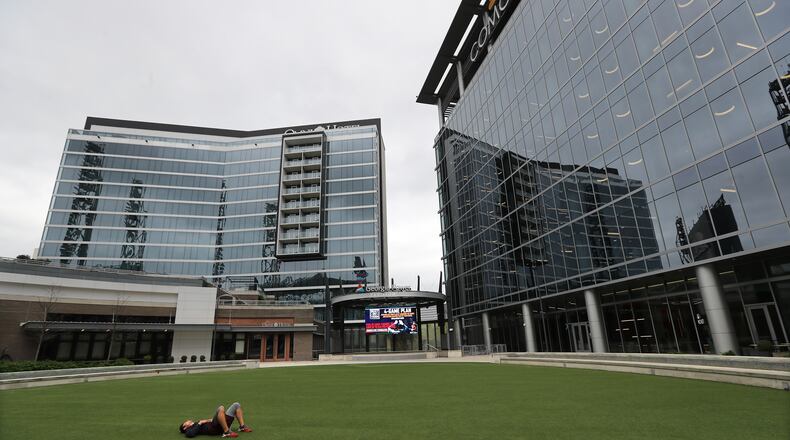Cobb County hotel tax collection for March and April was down more than 50 percent from the same time last year due to the COVID-19 pandemic, an early sign of the negative impact the virus is expected to have on local governments and economies.
The county-wide tax brought in just $693,000 over the two-month period, compared to $1.4 million last year.
The hospitality industry has been hit particularly hard by the pandemic, and tourism dollars make up a small portion of the county’s overall tax revenue. Nevertheless, Cobb relies on those funds to pay off debt, including on the Braves stadium, and the decline in business is likely to be mirrored in other industries.
“There are lots of ripple effects,” said Holly Quinlan, president of Cobb Travel & Tourism. She said her agency estimates that approximately 1,500 workers have been furloughed or laid off from Cobb hotels.
“What affects hotels also impacts the different businesses in the area, the restaurants, and what happens at the Cobb Galleria Center impacts the hotels,” she said. “The tourism industry, I think, is a great representation, although it is one of the hardest hit areas.”
County officials had touted Cobb’s flourishing hotel business as evidence of the stadium’s halo effect. They credited rising hotel tax revenue with a decline in the debt burden to local taxpayers, although the county is still in the red on its largest investment, Truist Park.
Last year, Cobb spent $4.2 million from its general fund on the stadium, according to County Finance Director Bill Volckmann. That was down from $5.8 million the year before.
Despite the precipitous drop in hotel taxes, Volckmann said he expects the general fund contribution for the stadium to hold steady this year at slightly more than $4 million. The lost hotel fees can be made up with fund balance from Cumberland commercial property taxes, he said.
“One of the challenges that we’ll face is if we have a prolonged shutdown,” he said. “If this were to go three or four years out, yes, this will have a general fund impact.”
The finance director added that the county has already budgeted for a drop in commercial property tax collections around the stadium.
Cobb is also using coronavirus aid money to offset some of the losses. The $3-per-night room fee, paid by guests of hotels in the Cumberland area, has also dried up. The surcharge, which brought in more than $3.5 million last year, was used to cover stadium debt, police overtime, Cobb Travel & Tourism, and the free circulator that runs to and from the ballpark.
County Commissioners recently approved spending $675,000 of federal coronavirus funds, allocated under the CARES Act, to continue operating the circulator. All Cobb buses have been free to ride since early April.
Roger Tutterow, an economist at Kennesaw State University, said Cobb is still largely reliant on property taxes, where the impacts will be delayed. But tourism has become a larger piece of the pie in recent years.
“While Cobb has long championed its hospitality industry as being an important part of the economy, after the construction of [Truist Park] and The Battery, it made it a larger portion,” he said.
But shifting the tax burden to visitors and pleasure-seekers means those revenue streams are more vulnerable in times of crisis.
“If this is a one-off event and we return to previous levels [of spending and travel], then I’m sure the county will be able to reallocate funds in a way to service debt,” he said. “It would certainly be problematic if we were to see another round of infections.”
About the Author
Keep Reading
The Latest
Featured



